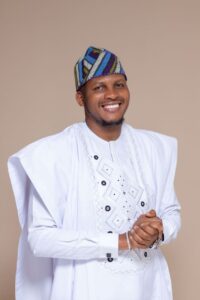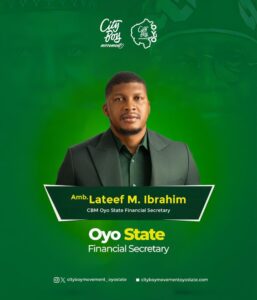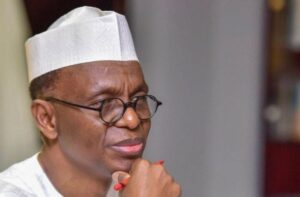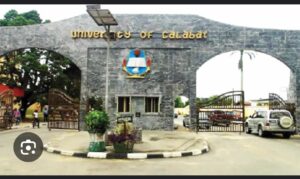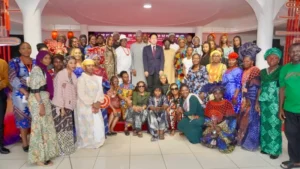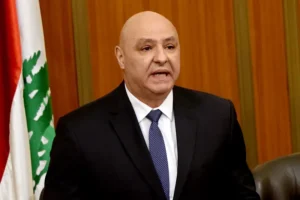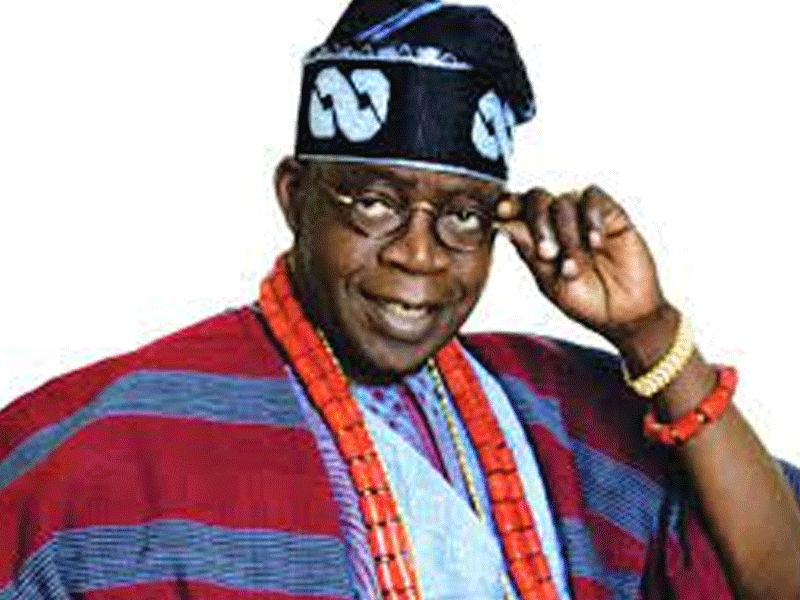
By Adewuyi ADEGBITE
In his the “Lord’sday” column in the “Sunday Tribune” of Sunday, June 26, 2022, Bola Bolawole raised a question on the presidential aspiration of the presidential candidate of the ruling All Progressives Congress (APC), Asiwaju Bola Ahmed Tinubu: whether he is the much expected Messiah Nigerians have been waiting for? Bolawole went biblical; he delved into the scripture as regards the inquisitiveness of John the Baptist about the Messiahnism of Jesus Christ. John the Baptist, according to the scripture, was the forerunner of the jewish Messiah, Jesus Christ.
Messiah is a concept in Abrahamic religions of Judaism and Islam with different nomenclatures.
It is Messiah in Judaism and Mahdi in Islam. This concept emanated from the context of a people under oppression and in need of an emancipator. From their days in Egypt, to their settlement in the Promised Land, the Isrealites had been under one form of oppression or another.
Moses could be described as their Messiah in the context of their Egyptian bondage. Various judges, including Deborah, Gideon, Samson in the book of Judas, could be regarded as some of their “Messiahs.”
In the context of Jesus Christ messiahnism, prophets like Isaiah had prophesised about a Messiah since their day in captivity in Babylon and Assyria. In the days of John the Baptist to the birth of Jesus Christ, Jews were under the rule of the Roman Empire. According to the prophesies, Jews were expectant of a messiah who would save them from the bondage of the Roman Emperor. In the context of the Jewish messianism, that Messiah would be a super human or a freedom fighter, who would declare a war on Roman Empire and free the Jews from the oppressive rule. However, the Messiah prophesised by Prophet Isaiah was not a warrior in the worldly context but a Spiritual Messiah who will save the Jews and, by extension, the people of the world from their sins which were the causes of their afflictions (Isaiah 7:14, 42:6, 49:6, 52:10). The Jews, because of their expectation, did not regard Jesus Christ as the Messiah. This is partly due to the humble manner of his birth, including his place of birth in Nazareth and non-violence approach to their redemption. As a matter of fact, Jesus Christ did not present himself as the Messiah. In actual fact, his core loyalists, among his disciples, witnessed some revelations that convinced them of being the Messiah but Jesus cautioned them from revealing his identity. Various miracles he performed, his teachings, knowledge of the word etc. were unprecedented and enough to show his identity but hid himself until the appointed time when he had to enter Jerusalem triumphantly in the course of his death, resurrection and ascension.
Only few among the Jews regarded Jesus Christ as the Messiah and even after his death, resurrection and ascension. Some Jews were still expecting the Messiah.
Messianism can be said to be introduced into Nigeria political lexicon by Chief Olusegun Obasanjo. In the heat of the June 12, 1993 debacle, Obasanjo in far away South Africa declared that the winner of the June 12, 1993 presidential election, Chief M.K.O. Abiola was not the Messiah Nigerians were expecting. No justification was added to his declaration, though. The fact is that Nigeria needs no political Messiah in the Jews’ context because Nigeria is an independent country, so to say.
President Buhari was a sort of Messiah pre-2015 presidential election. Evidences today pointed contrarily to his messianism. There is no doubt that the problem of Nigeria is leadership. Mineral and human resources abound in the nation, how to tap it for the good of all and sundry is part of our problem. Other problems facing the country include insecurity of lives and properties, exemplified by insurgency, banditry, kidnapping for ransom, herdsmen menace, and so on, persisted due largely to the failure of leadership. Economic woes, deindustrialisation, power failure, embezzlement and corruption, lack of unity, comatose educational sector are as a result of bad leadership. Most of our political leaders are insincere, unscrupulous, and unprincipled and seek power for power sake. Instead of a Messiah, Nigeria needs a tested leader who understands the problems facing the country and ready to sincerely approach them headlong.
Asiwaju Bola Ahmed Tinubu is not a saint as there is no saint anywhere in the world. Not being a saint does not qualify him as a Messiah. Nonetheless, he has all the qualities of a good leader. This is contestable because there are many who see nothing good in him. His traducers accused him of corrupt practices, forged certificates, forged age etc. However, in my own view, there is no Nigerian particularly since the inception of the 4th Republic who has been a stabilising factor for Nigeria democracy as Tinubu. His running battle with Chief Olusegun Obasanjo presidency over the creation of LCDAs and his decision to practice true federalism which led to withholding of Lagos State allocation by Obasanjo is well known. How he ran Lagos administration successfully without federal allocation is a wonder. Equally, his efforts through the court of law to retrieve stolen mandates of some governorship candidates of opposition parties are on record. Asiwaju Tinubu can be said to be the arrow head of the coalition which, for the first time in Nigeria history, won election against a sitting Federal Government. According to Financial Times of London, “One of the attributes of Tinubu which stands him out among his peers (and which can help him in tackling Nigeria problems) is ability to spot talents and nurture it.” One of his allies attested to this quality and asserted that he absorbed the lesson while working with Exxon Mobil “We bring talents to governance, we don’t want Lilliputians, we want people who can think and act.” One point I always raised when describing Tinubu leadership politics is the way he held sway in Lagos and stabilised the state politically, economically and security wise in the last twenty three years and make Lagos a destination from the periphery in search of greener pasture aside abroad. If Lagos were Nigeria, the story would have been different, courtesy of Asiwaju Bola Ahmed Tinubu.
Adegbite, historian and writer, sends through ayekooto05@gmail.com

